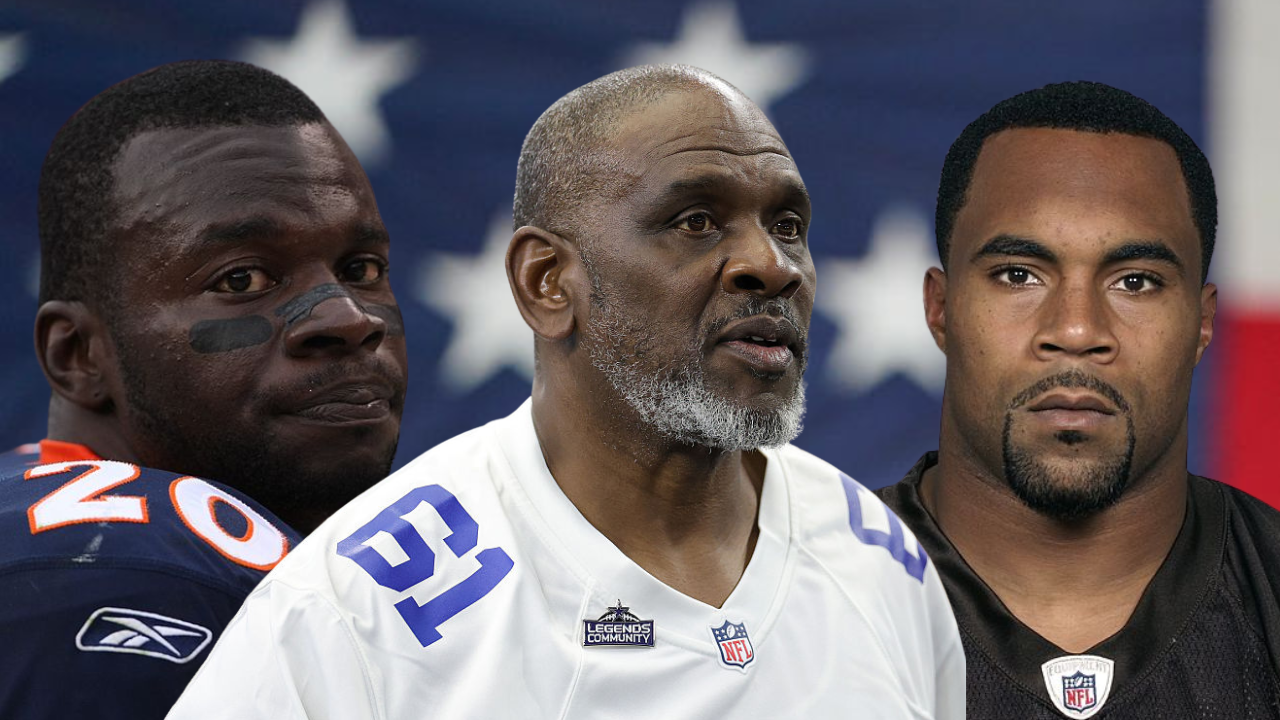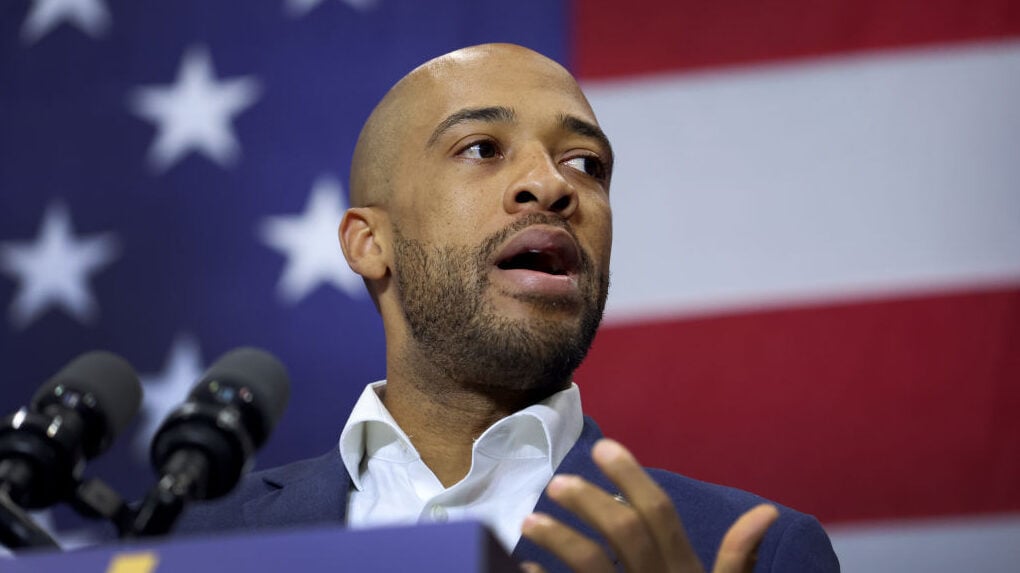On ‘Martin,’ Pam and how we talk about art we love

Last week, Grammy-winning singer Ari Lennox took to social media to discuss her feelings about Martin, the classic 1990s sitcom starring the titular Martin Payne (played by comedian Martin Lawrence) and his friends trying to make it in Detroit.
The show is beloved, especially among Black folks. Yet Lennox had some critiques, namely the way Pam, played by Tichina Arnold, was treated.
“There are some things where I draw the line,” Lennox said. “Pam was so f—ing beautiful and so fine, and I just feel like growing up as a chocolate girl I don’t even know if I was able to understand the greatness of Pam because of what I was being fed.”
The reaction to Lennox’s comments have largely been met with dismissal and, sometimes, vitriol. It’s a shame, because we shouldn’t discredit a dark-skinned woman’s experience about seeing how another dark-skinned woman is portrayed or ridiculed on television. The reactions to her comments say more about ourselves as consumers of art and content, and our refusal to engage with meaningful discussion, interrogation and, yes, even criticism of the things we love.
Like a lot of Black folks my age, I grew up loving Martin. The show, part of Fox’s Thursday night slate that included Living Single and New York Undercover, was a comedic masterpiece with a lot of the biggest laughs coming from the insults Martin and Pam used to throw at each other.
Much like the relationship between Esther and Fred on Sanford and Son decades prior, Martin and Pam, who was best friends with Martin’s partner, Gina, despised one another. So at least twice an episode they’d trade barbs about the other’s perceived flaws. Pam would clown Martin about his height and the size of his ears. Martin would call Pam any type of animal from a horse to a beast and make fun of her hair. As a kid — I was in elementary school when the show debuted in 1992 — I laughed at every single one of those jokes.
I revisited Martin as an adult in my 20s and I laughed at those jokes again. Martin still holds up as one of the funniest sitcoms on TV. I also remember having a conversation with a few guys who were around my age, who were also revisiting Martin and we all, to a person, said some version of “Yo, I didn’t realize Pam was that fine until now.” We spent the rest of the conversation talking about Tichina Arnold, her talent and how she was a true star in the show.
I’ve thought about that conversation a lot over the years, even before Lennox spoke up. I’ve often wondered why a group of men didn’t see Pam’s beauty when we were boys. I don’t have the definitive answer, of course, but I can’t help but wonder if some of the way we perceived her is because, on a weekly basis, we were fed jokes that she was undesirable.
As kids who were beginning to form our own preferences and ideas about beauty, it’s perfectly reasonable that we’d be swayed by the most popular, funniest guy on the show telling us that Pam was ugly. And for Lennox, it’s absolutely valid that the same constant joking about Pam’s looks impacted her self-esteem.
At the very least, Lennox’s feedback deserves some interrogation. And yet, the general reactions have been flippant accusations that viewers are too sensitive and we can’t take jokes anymore. Complaints about snowflakes and the fact that we have to “think piece” everything instead of just enjoying it.
But therein lies the problem: Why can’t we do both?
Christopher Polk/Variety via Getty Images
Neither Lennox nor I are advocating for canceling Martin. I’m not even passing judgement on anyone involved in the jokes for not having the breadth of understanding of what they were possibly doing when they were cracking on one another. I don’t for a second think Lawrence (or Arnold, who herself would come up with some of the jokes) wrote his barbs with the intent or consideration of how little Black girls could possibly see themselves. They were just playing the dozens, as we all did back then.
This isn’t really about the intent or any condemnation. It’s just a matter of critically engaging with something we admire. Sadly, we are in a climate where thoughtful interrogation is now a forbidden idea. Even now, I know that people are going to see the headline and say, “Oh, no, not another think piece.”
But why shouldn’t we continue to talk about the art we’ve loved? Art should encourage, not deter us, from having in-depth, and sometimes tough discussions about it. This has always been the case. Not anymore.
The problem is that we’ve lost the plot on how to consume media or be fans. Stan culture, the culture that has shifted us from being fans to being fanatics, has created an environment where we are so beholden to the people and content we love that any perceived critique is an affront to us as fans. As a result, we defend every aspect of the thing we like no matter what. Just look at what happens with the Barbz, Nicki Minaj’s fervent fan group. Any time someone lobs a critique at the rapper on social media, they line up to attack them.
Look at what happens when someone on TV is critical of an athlete like LeBron James or Kobe Bryant. And look at what happens when people dare to wonder if a commercial has intentionally included possible racist dog whistles. These days, there’s just no room for thoughtful analysis or ability to have our minds changed about a thing.
For the loudest, most recent example, look no further than this past season of Love Island. The reality show, where extremely attractive 20-somethings go to Fiji to find love, has become a sensation in the past two seasons with each cast member getting their own “hive” of fans. The fandom is complicated, though, as it’s filmed and released in real time every 24 hours with no real ability for producers and editors to create a narrative from the beginning of the season to the end, unlike fully pre-taped shows that paint one-dimensional depictions of the cast. That creates a scenario where Love Island shows us people’s true growth; their contradictions; their shortcomings, and their successes. Therefore, it’s harder to create one definitive stand on every character.
In some episodes, Ace may look manipulative and petty, but in others he’s genuine and romantic. Huda is a toxic lover with abusive tendencies who also seems to really love her child. But by the time we see other aspects of someone’s character, it’s too late. The new information doesn’t matter because we’ve already decided to “stan” someone, join their hive and defend them without hesitation. So when Cierra is exposed for past use of racial slurs, if we were opposed to her, it means she’s canceled. Yet when other characters we may love have similar pasts, we can excuse them and turn the other cheek because it fits where we’ve already settled.
This is no way to consume content. Art, yes even reality TV, begs us to embrace it with honesty. Whether it be Martin, Love Island, or Beyoncé, full-throated embraces without any room for even questioning what we’re consuming does a disservice to us and the art itself. We lose the ability to ask art to be better and we lose the desire to ask of ourselves to be better at how we absorb the art being presented to us. If we lose that, we lose a piece of our humanity. We become no better than artificial intelligence, just churning out soulless cheering bereft of any true intellectualism or spirit. We become less than human and the art becomes stagnant. And when art is stagnant, it stops becoming art. And there’s nothing to gain from what is being produced.
All of this really isn’t even about if you agree that Martin had colorist tendencies because this isn’t even about agreeing or disagreeing. Ari Lennox’s feedback about Martin is valid because it’s her experience from consuming art. As is mine. As is anyone who genuinely and earnestly engages with opinions, even if those opinions don’t ultimately factor in how you watch the show going forward.
The outcome of the discussion isn’t the point; it’s about the actual existence of the discussion and what we lose when those discussions disappear. Talking about Martin and Pam’s dynamic hasn’t stopped me from loving and continuing to watch Martin. At the least, though, we can and should be able to come together and talk about what we’re watching — in between our laughs and jokes about beady beads and big ears, of course.
What's Your Reaction?
 Like
0
Like
0
 Dislike
0
Dislike
0
 Love
0
Love
0
 Funny
0
Funny
0
 Angry
0
Angry
0
 Sad
0
Sad
0
 Wow
0
Wow
0
































